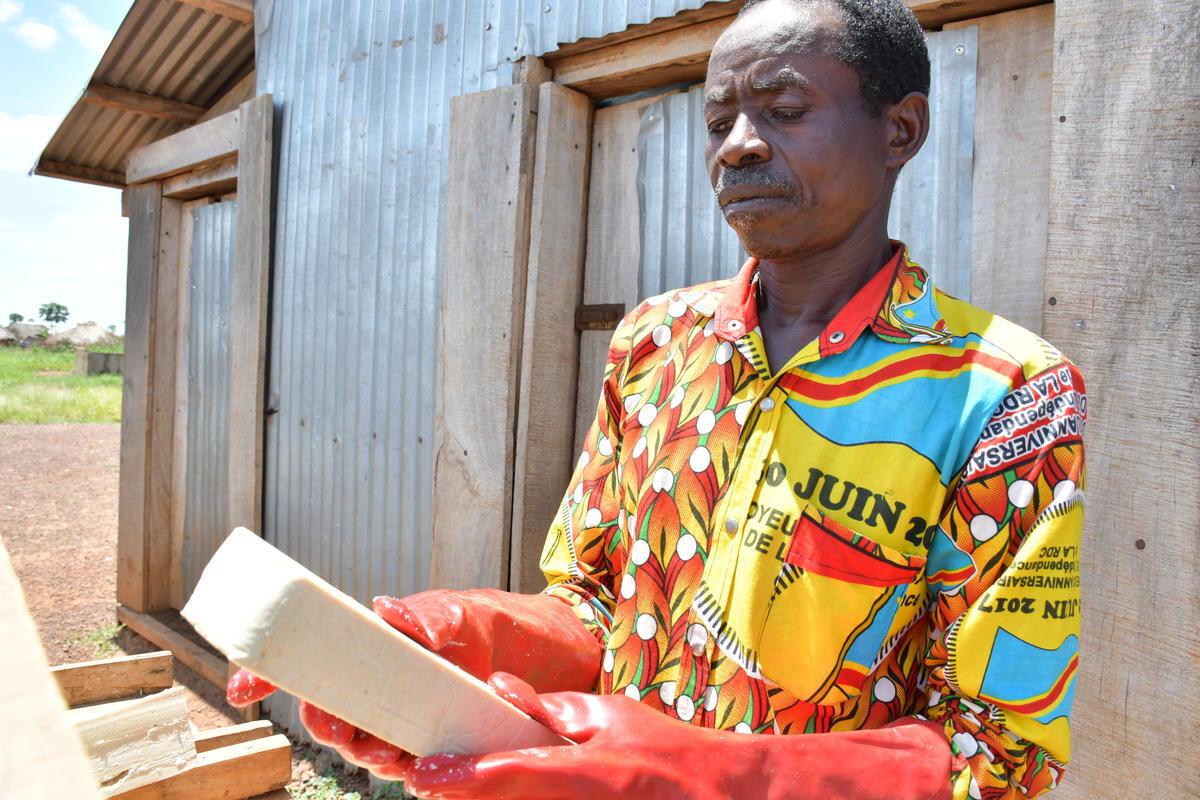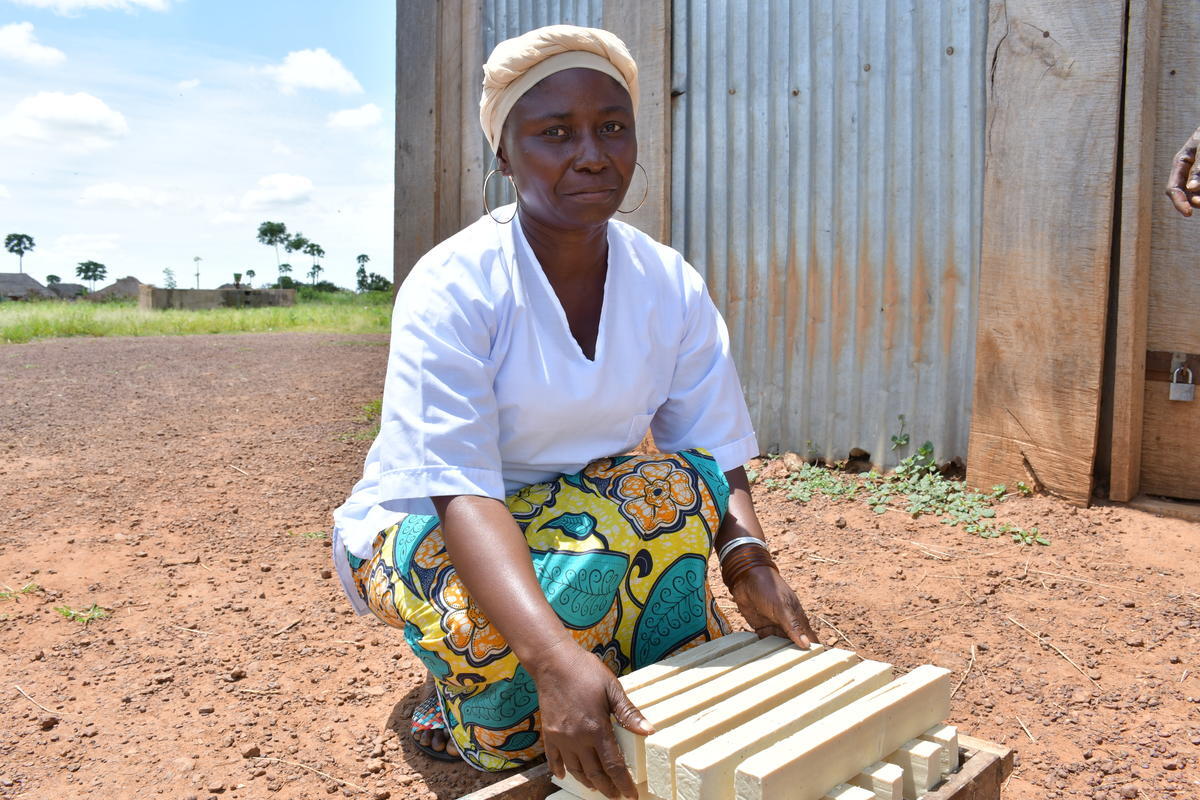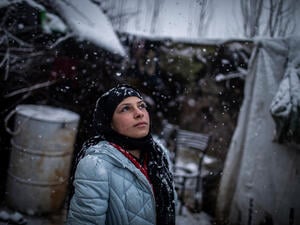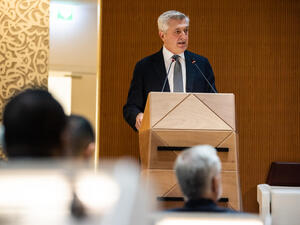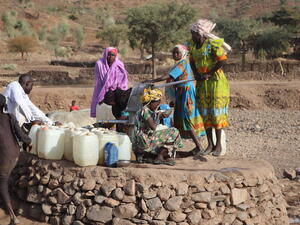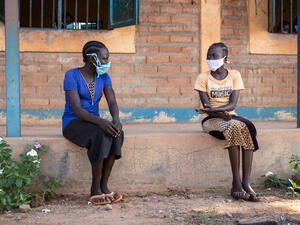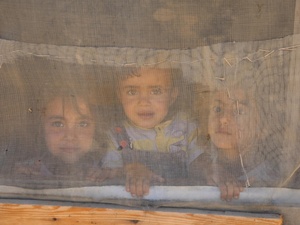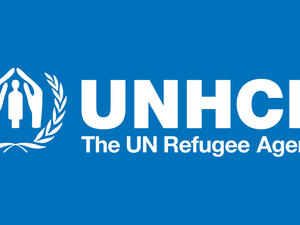Central African refugees make soap to help fight COVID-19
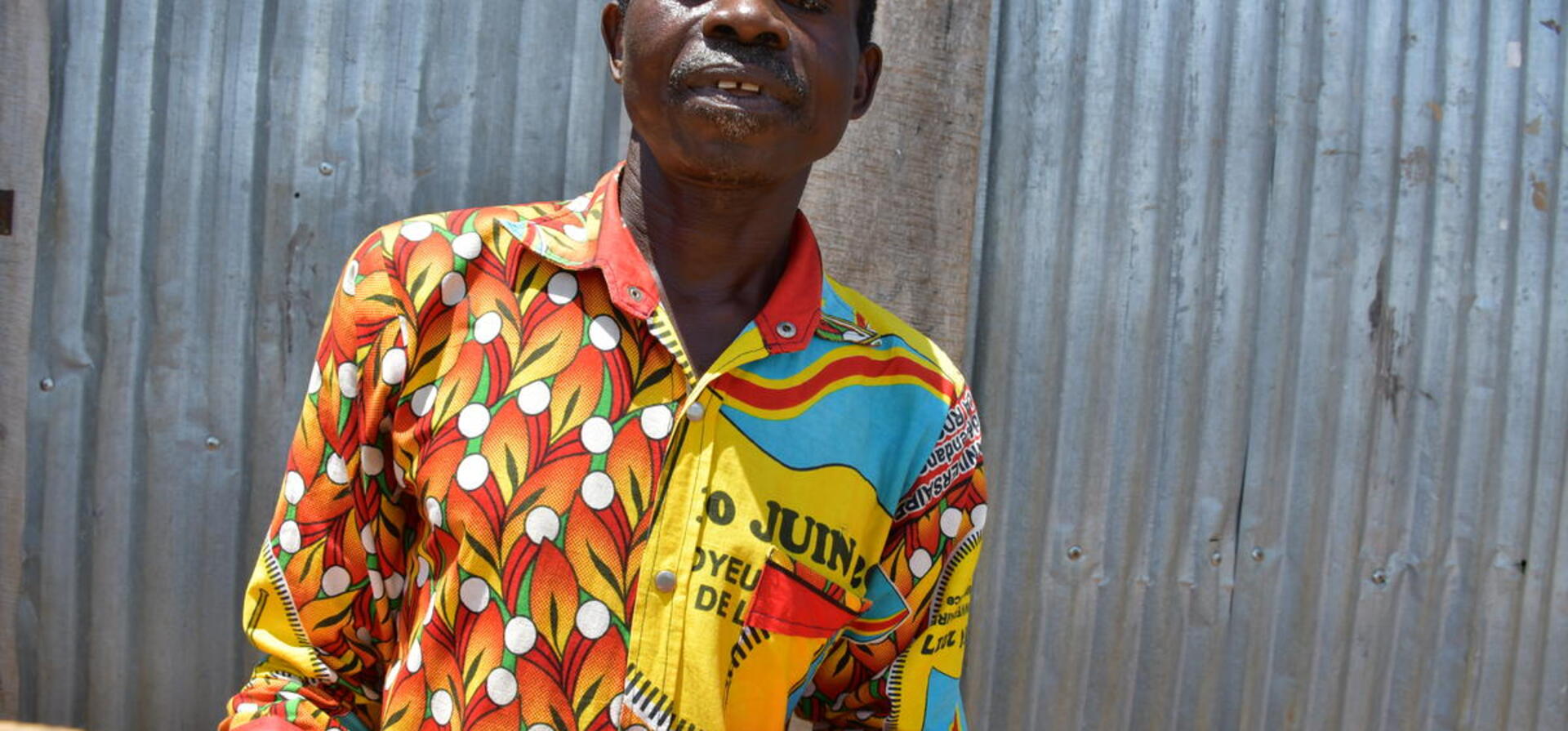
Central African refugees make soap to help fight COVID-19
Slightly perched on a roughly crafted wooden stand, Jean de Dieu, 52, carefully pushes a thick layer of freshly made soap through a thin wire, cutting it into rectangular bars.
Together with five other refugees from Central African Republic (CAR), he is making soap, using local ingredients he bought in the local market near Inke refugee camp, some 40 kilometres outside from North Ubangi’s provincial capital, Gbadolite, in Democratic Republic of the Congo (DRC).
“Everyone here is worried about coronavirus. Since it started, humanitarian agencies informed us that we should wear masks and wash our hands regularly with soap and avoid crowds,” says Jean de Dieu.
The father of seven fled the CAR with his wife and children in December 2012, leaving everything behind. Shortly after his arrival at the camp, he quickly transformed what had once been an occasional activity into his livelihood. He started producing and selling homemade soap to both refugees and the Congolese community living in the nearby village.
“With this activity, I am able to support my family and also save some money,” he says.
He adds that he receives a lot of requests for soap from refugees – there are some 18,000 residents in the camp. In addition, the Congolese living nearby are part of his clientele.
“With this activity, I am able to support my family and also save some money.”
“At the moment we can’t satisfy the full demand of these customers because we don’t yet have the capacity to produce large quantities,” he explains.
UNHCR, the UN Refugee Agency, solicited his expertise to train other refugees, as part of a project to provide support to refugees’ business initiatives.
Currently, there is a network of six associations of soap makers, comprised of 120 refugees in the camp. They are increasing production to satisfy the growing demand for soap, to prevent the spread of unhygienic practices that would compromise the health of the population in the event of exposure to COVID-19.
“I have trained over 100 Central African refugees since I arrived here and we are ready to scale up the production capacity and help people to better prevent the spread of coronavirus,” explains Jean de Dieu.
Albertine Marthe, 40, is one of the refugees who benefited from this training. The mother of 10 is now among the people assisting Jean de Dieu to make soap.
After working seamlessly for a few hours, cutting and packaging soap, she is happy when all the soap is sold out within a couple of hours inside the camp. She also sells the soap at the market that brings together the refugees and their Congolese hosts, further cementing the fluid and easy community spirit that reigns between them.
With the money she makes, Albertine can continue to support her family who fled with her to the DRC in 2013, after armed men attacked her village. She went into labour- in a dugout canoe - while crossing the Ubangi river, she reminisces. She didn’t know how she would make it to safety but found the strength to continue her journey and eventually had a safe delivery in Gbadolite hospital.
“Life has gotten better for us since I started making soap,” she says. “I equally make a few bars of soap for my personal use at home, she explains and beams with a sure satisfaction.”
“Life has gotten better for us since I started making soap.”
She adds that she and her soapmaking partners put together money to buy soap ingredients from Inke market and from Gbadolite.
“Sometimes, people from afar place their orders from us”, she adds.
Once a routine livelihood activity, soap making is now regarded as a health service and Jean de Dieu and his colleagues want to satisfy growing demands for hand washing materials which is fast spreading as a way of life in these rural areas.
For Jean de Dieu and his peers, it would be a dream fulfilled to see their brand, ‘savon kotakeke,’ the Sango word for ‘large tree,’ finely engraved on well packaged bars of soap.
Since the declaration of the COVID-19 pandemic, UNHCR has been strengthening health and hygiene activities in refugee camps and in sites hosting internally displaced people across the DRC. To date, UNHCR has set up over 3,000 handwashing stations and distributed bars of soap for use as a prevention measure against the virus.
At the same time, refugees have stepped up their response by raising awareness, promoting regular handwashing and serving as hygiene promoters, as well as mask makers.
However, more needs to be done to fully protect the over 525,000 refugees and 5.5 million people who are displaced inside the DRC against coronavirus which, like in most countries worldwide, is spreading across the country.
UNHCR’s operations in the DRC are currently only 52 per cent funded and additional financial support is vital to provide life-saving activities and support more refugees to develop their own livelihoods, like the soap-makers of Inke camp.


